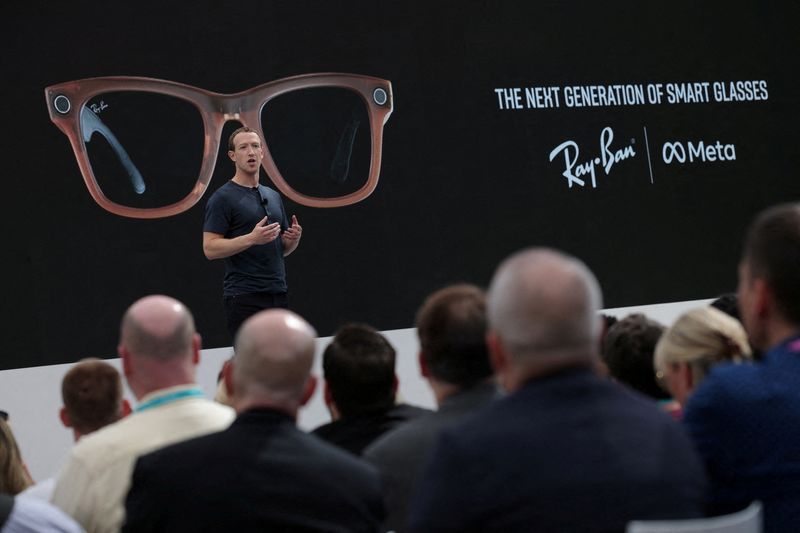|
Getting your Trinity Audio player ready...
|
Meta Platforms CEO Mark Zuckerberg unveiled a range of new artificial intelligence (AI) products at the Meta Connect conference, marking a significant step toward integrating the virtual and real worlds for consumers. The event, Meta’s largest of the year and its first in-person conference since the pandemic’s onset, showcased innovations designed to enhance user experiences and bring AI into everyday life.
Zuckerberg emphasized Meta’s commitment to providing low-cost or free AI solutions that seamlessly integrate into daily routines. The products announced at the conference include AI-driven chatbots, smart glasses, and an updated virtual-reality headset.
Smart Glasses and Livestreaming
Meta’s new generation of smart glasses, branded under the iconic Ray-Ban label, is set to start shipping on October 17, priced at $299. These smart glasses will feature an integrated Meta AI assistant and the groundbreaking capability to livestream what the wearer sees directly to Facebook and Instagram. This advancement builds upon the previous generation’s functionality, which allowed users to capture photos.
Next-Gen Quest Mixed-Reality Headset
The latest Quest mixed-reality headset will begin shipping on October 10. This headset, dubbed the Quest 3, offers mixed-reality technology akin to its more expensive counterpart, the Quest Pro. Priced at $500, it provides users with a video feed of the real world around them while incorporating virtual elements.
Meta AI and Generative AI Products
One of the standout announcements was the introduction of Meta AI, a versatile AI assistant that will be integrated into smart glasses in beta, initially available in the United States. In the near future, a software update will enable Meta AI to identify objects and locations, as well as perform language translations.
Meta developed Meta AI using a custom model based on the powerful Llama 2 large language model, which the company made available for public commercial use in July. The chatbot will also have access to real-time information through a partnership with Microsoft’s Bing search engine.
Custom AI Bots and the Metaverse
Meta also revealed plans to create a platform for both developers and the general public to design custom AI bots. These bots will have profiles on Instagram and Facebook and eventually become avatars in the metaverse—a virtual shared space. To showcase this platform’s capabilities, Meta created a set of 28 chatbots with distinct personalities, modeled after celebrities such as Charli D’Amelio, Snoop Dogg, and Tom Brady.
The focus of these AI innovations appears to be on enhancing existing apps and devices rather than introducing new advertising opportunities or direct revenue streams. Observers suggest that Meta is positioning itself as a platform for developers to leverage AI capabilities.
Xbox Cloud Gaming Coming to Quest
In another exciting development, Zuckerberg announced that Xbox cloud gaming will be available on Quest devices starting in December, offering gamers a new way to enjoy their favorite titles.
These product announcements underscore Meta’s commitment to advancing AI technologies and bridging the gap between the physical and digital worlds. They also reflect Mark Zuckerberg’s strategy to shift the company’s focus toward AI amidst changing investor sentiment.
Investors and developers eagerly awaited the event’s outcomes, with an eye on the potential for new applications and the company’s ability to capitalize on AI innovations. The day’s announcements signal Meta’s ambition to remain at the forefront of AI development and its continued efforts to reshape the way we interact with technology.



